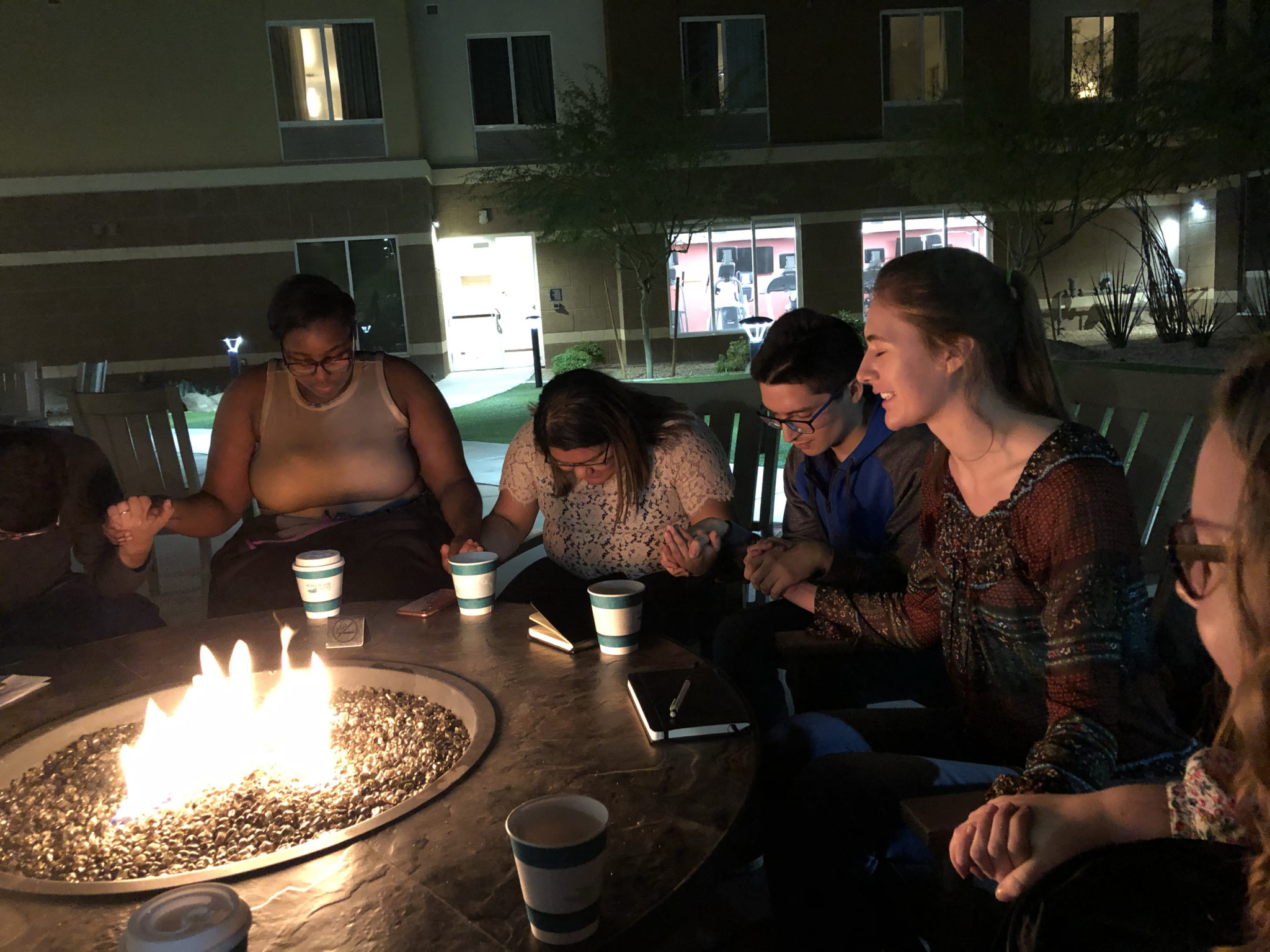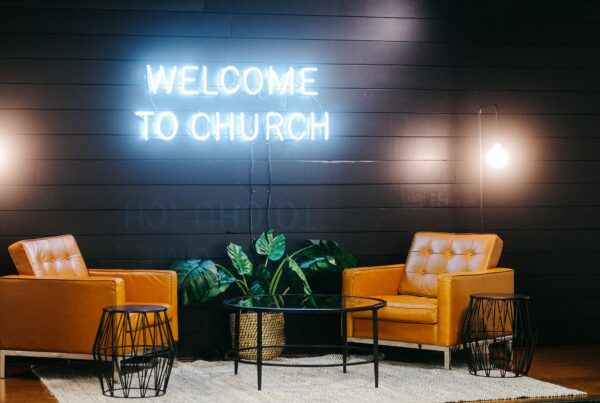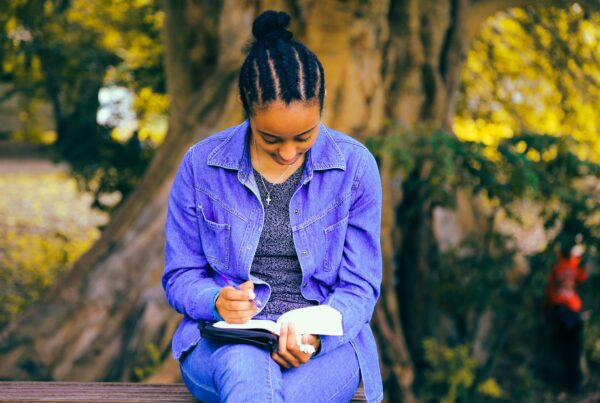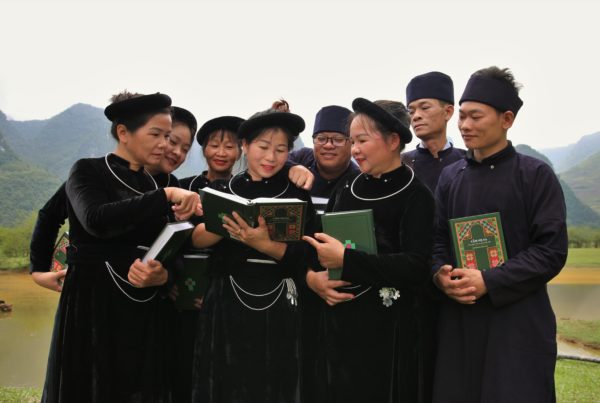T hey didn’t initially plan on going—none had even heard of the Robben Island Project, after all—yet it was a set of trips that would change their lives.
Sure, the reasons were different. Bizzy Feekes heard about it from one of the leaders at the church where she was interning; that leader, Anna Radcliffe, Reformed Church in America (RCA) coordinator for Next Generation Engagement and co-pastor with her husband at City Chapel in Grand Rapids, Michigan, told her to apply.
Marketea Abbott’s professor at Hope College in Holland, Michigan, had sent an email to her class. Abbott didn’t really know what the trip was about, but fellow participant and friend Jazmin Martinez convinced her to apply last minute. They, too, were accepted.
Through the Robben Island Project, six college students from Central College (Pella, Iowa), Hope College, and Kuyper College (Grand Rapids, Michigan), including Feekes, Abbott, and Martinez, explored intersections of racism, history, and their personal life journeys; developed their own leadership skills; experienced spiritual formation; and put together a project and process that they could bring back to their own context.
Over the course of about five months, the participants learned alongside RCA staff members Radcliffe, Eliza Cortés Bast, RCA coordinator for Local Missional Engagement and special projects, and Earl James, then-RCA coordinator for the African American Black Council and Advocacy.
What is the Robben Island Project?
The Robben Island Project was designed to be a Sankofa experience, in which participants learn from the past in order to move forward. The Sankofa is a symbol of a bird whose head turned backward, representing the important work of carrying history into the future; RCA members have used Sankofa experiences for a decade to engage racial justice and gender equity. The name Robben Island refers to the island where Nelson Mandela was imprisoned during apartheid in South Africa. “Even though it’s a symbol of imprisonment, it’s also a symbol of hope, being a place where the ideas around apartheid were fought for and resiliency was birthed,” Bast explains. “There’s new hope and optimism that comes from that.”
The group had two immersion experiences, going somewhere to learn about and learn from how that community has grappled with race. They visited Charlottesville, Virginia, to look back at slavery, and Phoenix, Arizona, to look at current border and immigration issues and the effects on Native Americans. (Their intended visit to Ferguson, Missouri, was canceled due to the coronavirus pandemic.) In each city, “leaders from that community and from those contexts would walk us through what some of the systemic issues were and how the community and the church were addressing those issues,” says Bast.
The process, while simple, was intense. The participants had pre-work to do, whether reading, watching, or writing to prepare for their time in the city. When they were in Charlottesville and Phoenix, the days were busy learning from members of the community as they toured different areas. On top of that work and their busy days, there was an emotional and spiritual weight to what they learned, so they spent plenty of time processing.
“Every night, which I loved, we got together and we reflected [on the day] before we prayed and went to our separate rooms, so it’s not like you are just sitting with all of this heavy stuff,” explains Abbott.
Finally, participants developed their leadership skills, learning “to identify their own stories [of racial dissonance], then identify some creative problem solving to what they could do in their own context,” says Bast.
That leadership development part was key to the process. “I think the [leadership development] angle is twofold,” says Radcliffe. “One, it’s about equipping creative students who are already engaging these gifts, and unleashing them to be change agents around race and diversity. Two, it’s about connecting with young leaders to better inform the work of the RCA, and looking at how we need to recalibrate for the creative works and endeavors of these leaders to be more faithful in serving all God’s people.”
For that final project to implement change in their communities or personal context, the participants worked with their mentors on the trips and through follow-up video calls. Taking these experiences back home and engaging others in their communities around racial justice is the culmination of the Robben Island Project. Though the global pandemic derailed initial plans and timelines, participants still hope to move forward as leaders for racial equity in their own contexts. Their ideas range from speaking at and creating a tool for churches to discuss race (Feekes) to showcasing talent of people of color in a show (Abbott) to empowering Latina women in the community (Martinez).
Life changing experience
Despite the unintended pause from the coronavirus, the participants have already had a life changing experience. “It’s made me a lot more cognizant of things. I don’t have the luxury anymore to be complacent and to ignore the injustice I see every day; I’m no longer ignorant,” says Feekes.
Abbott has been empowered to both show up and speak up, she says, “because these voices that are speaking are necessary in the conversation. All voices are necessary in the conversation. So I think showing up and always speaking is definitely important.”
Martinez says, “It’s definitely God … for the RCA to take on such a financial burden shows how invested they are gives me hope. At my school, I had such a hard time transitioning to being the only student of color in a lot of classes or even on campus. And it was great to see across the U.S. so many people are working on issues that we deal with on a daily basis.
“I think there’ll be a solution one day.”
This article was also published in RCA Today, the Reformed Church in America’s denominational magazine.
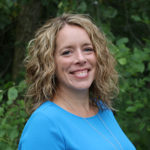
Jennifer Knott
Jennifer Knott is a former writer and editor for the Reformed Church in America’s communication team.
